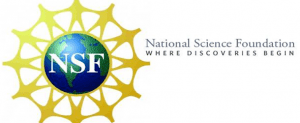Quantum News Briefs September 6: Mesa Quantum announces $3.7 M in seed funding • D-Wave Quantum joins the Chicago Quantum Exchange • US targets China with new quantum, chip-related export curbs • NSF funding is vital to maintain America’s competitiveness in technologies such as AI & quantum computing

Mesa Quantum announces $3.7 M in seed funding
 Mesa Quantum, an innovative quantum sensing company, announced on September 5 an oversubscribed seed funding of $3.7M led by J2 Ventures, a Boston based fund focused on dual-use technologies, with participation from SOSV.
Mesa Quantum, an innovative quantum sensing company, announced on September 5 an oversubscribed seed funding of $3.7M led by J2 Ventures, a Boston based fund focused on dual-use technologies, with participation from SOSV.
This investment enables Mesa Quantum to build a new research and development facility, hire top technical talent and position themselves to commercialize chip-scale quantum sensors for deployment at scale. The technology has applications in defense, energy, space, telecommunications and several other key economic areas.
Satellite dependence, for everything from defense to commercial use cases, remains a large, growing and underserved market. While the Space Force and other government agencies rely on Global Positioning System (GPS) satellites for Position, Navigation and Timing (PNT), so too do most consumer electronics. However, GPS is vulnerable to jamming and spoofing attacks, which opens the door to catastrophic outcomes like power grid and telecommunication disruption, failure of military operations in the field and disruptions to supply chain and transportation networks.
Mesa Quantum has already been awarded an additional Space Force grant of $1.9M for Alternative PNTPosition, Navigation and Timing (Alt PNT) applications, with several other awards they anticipate in short order as a part of their government scaling.
D-Wave Quantum joins the Chicago Quantum Exchange
 D-Wave Quantum Inc. announced via news release it has joined the Chicago Quantum Exchange (CQE) as a corporate partner. The company, which serves a wide range of industries, helps customers derive value from today’s quantum technologies by solving complex computational problems spanning optimization, research and artificial intelligence.
D-Wave Quantum Inc. announced via news release it has joined the Chicago Quantum Exchange (CQE) as a corporate partner. The company, which serves a wide range of industries, helps customers derive value from today’s quantum technologies by solving complex computational problems spanning optimization, research and artificial intelligence.
It aims to engage with the CQE community on materials science research, quantum education, and the development of practical optimization use cases, including for the manufacturing and logistics industries.
The CQE is based at the University of Chicago and anchored by the US Department of Energy’s Argonne National Laboratory and Fermi National Accelerator Laboratory, the University of Illinois Urbana-Champaign, the University of Wisconsin–Madison, Northwestern University, and Purdue University. The CQE includes about 50 corporate, international, nonprofit, and regional partners.
In Other News: Bloomberg reports “US targets China with quantum & chip-related export curbs”
The Biden administration plans to impose export controls on critical technologies including quantum computing and semiconductor goods, aligning the US with allies working to thwart advancements in China and other adversarial nations as reported by Bloomberg’s Mackenzie Hawkins on September 5.
The rules target quantum computers and components, advanced chipmaking tools, a cutting-edge semiconductor technology called gate all-around, and various components and software related to metals and metal alloys. They cover all worldwide exports, but include exemptions for countries that implement similar measures. That group includes Japan and the Netherlands, among other allies, and the US anticipates that more nations will follow, the Commerce Department said in a press release.
In Other News: Federal News Network reports “NSF funding is vital to maintain America’s competitiveness in technologies such as AI & quantum computing”
 Emerging technologies such as artificial intelligence and quantum computing hold enormous potential to impact every aspect of our lives and our economy but NSF funding is necessary according to Paul R. Daugherty (Accenture’s chief technology and innovation officer), in his substantive article in September 4 Federal News Network
Emerging technologies such as artificial intelligence and quantum computing hold enormous potential to impact every aspect of our lives and our economy but NSF funding is necessary according to Paul R. Daugherty (Accenture’s chief technology and innovation officer), in his substantive article in September 4 Federal News Network
Using quantum on top of AI can solve challenges that were previously unsolvable. For example, quantum can propel AI forward by overcoming the computation limitations of classical systems, and advance complex problems that have been impossible to crack previously, like drug discovery.
These technologies possess immense potential, but we must not forget to address the ethical and societal implications that accompany such transformative technology. The NSF provides essential guidance and leadership to that work.
In FY 2024, the NSF budget was cut 9%. Although AI programs were spared, this narrow view of NSF’s criticality to American STEM leadership puts the U.S. at risk of falling behind on future technological waves.
The bipartisan CHIPS and Science Act authorized a doubling of the NSF budget over five years, including investments in STEM education, fundamental research and expanded partnerships. At this historical moment, it is crucial that our nation make the necessary investments to ensure we maintain an economic and competitive edge, a skilled and diverse workforce and strong national security.
The NSF’s mission today is more important than ever.



















